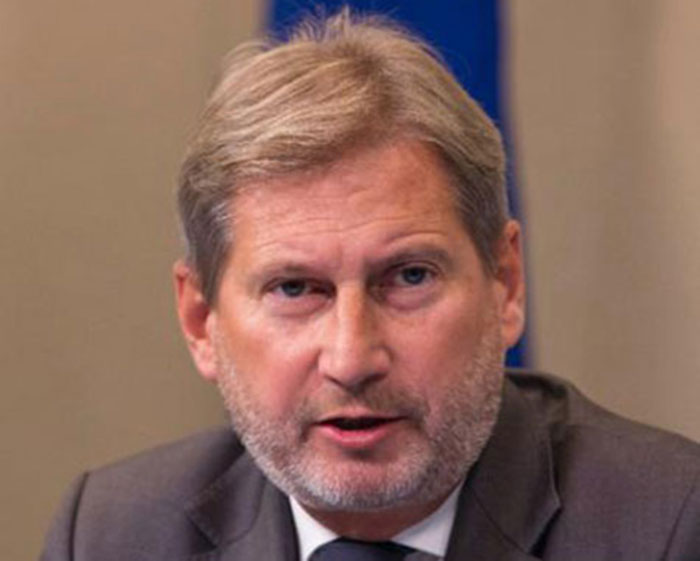Opening speech by Johannes Hahn, Commissioner for European Neighbourhood Policy and Enlargement Negotiations
Check Against Delivery
Distinguished guests, ladies and gentlemen,
I am delighted that so many journalists, media analysts and decision-makers have come here for this third edition of the Speak-Up! Conference. Along with the many representatives of international, national and regional organisations dealing with freedom of expression, your very presence shows how much you care about this key issue.
This is the third time that the European Commission hosts the event. And I am delighted to hear that people who participated in the previous editions of the conference are present – this shows the importance you attach to the discussions here.
The first Speak-up! event back in 2011 sent out a clear message that media freedom is fundamental to enlargement policy and underlined the importance of the media community as interlocutors for the Commission. Your view counts!
The second event – in June 2013 – was devoted to a thorough analysis of the different challenges of freedom of expression. The discussions at that conference led the Commission to formulate a comprehensive policy approach to follow media developments in the region, but also to form the basis for EU assistance to address persisting challenges. The main conclusion was that the media issues in the enlargement countries require a long term engagement from the aspiring countries and the EU.
I have heard it said that the EU has “lost its interest” in media freedom in the Western Balkans and in Turkey. There, we have seen worrying developments in the last weeks in the run-up to the elections, such as the intimidation of journalists in various forms.
Let me be very clear: Freedom of media is at the core of the EU integration process and is not negotiable!
I firmly believe that
- one cannot have a properly functioning rule of law in a country in some areas, and then at the same time have many court cases where judges rule against journalists – only because they have been critical about government officials;
- one cannot claim to have efficient law enforcement and proper protection of every citizen, if journalists still have to live in fear and perpetrators are not prosecuted;
- one cannot claim to have a transparent competitive market economy and at the same time tolerate non-transparent ownership of media (where sometimes nobody knows who the real owners/final beneficiaries are); one cannot have a transparent, professional and non-politicised administration guided by rules and at the same time huge amounts of public money spent in media without any accountability.
In other words: a deteriorating media situation impacts the overall readiness of the accession country to join the European Union. The countries of the EU prosper because they are places where there is great personal freedom – the freedom for each individual to make their own choices.
Media freedom is an essential pillar for this kind of society. It makes countries stronger. It goes hand in hand with the other fundamentals that we talk about so often – rule of law and economic governance.
Threats to free journalism are complex. Media working today both in the EU and in the enlargement countries face major challenges. Vested interests often make it difficult for independent media to survive financially.
Concentration of media ownership can undermine the diversity of messages that are necessary for a vibrant democracy – limiting the possibility for independent journalism and fostering self-censorship.
It is more important than ever for people to have access to a variety of objective, good quality and independent information. This is true for voters everywhere and perhaps even more so in countries going through an important transition.
No source of information will ever have the whole picture: so a diversity of voices is essential.
However when we observe the media landscape in the enlargement region, we see fewer and fewer diverging opinions in media, at least in some countries, less investigative stories and even the disappearance of popular critical TV shows. Does it mean that governments work flawlessly or that there are no more corrupt business practices to investigate? This is rather doubtful.
Today’s flourishing online and social media is a great contribution to our democracies. And citizens’ media can play an important part. However, not all sources can be read with the same degree of trust. This is why we must continue to support professional journalism and the training of journalists.
This also means overcoming the often “digital” attitude in public discussions, of being either entirely “for” or entirely “against” something or someone, to be either a “winner” or a “loser”. I would sometimes like to see more “nuance” for a real independent, impartial and non-partisan media landscape



